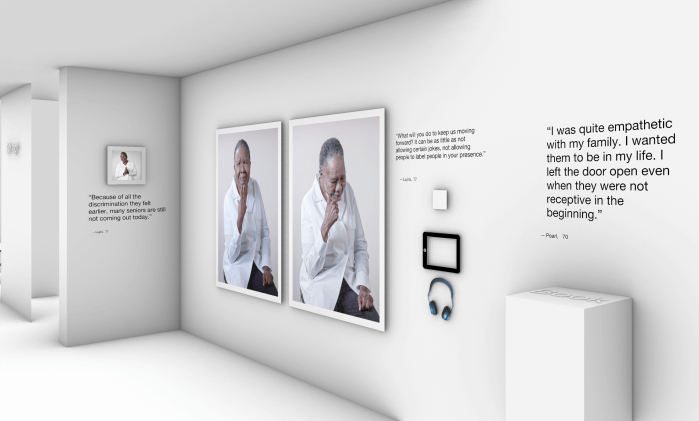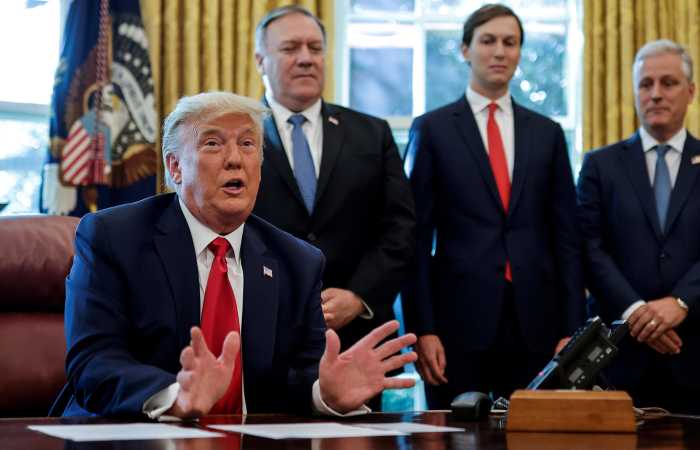The sensitive gay romance, “Your Name Engraved Herein,” now available on Netflix, became the highest grossing LGBTQ film in its native Taiwan — the only Asian country that has legalized same-sex marriage. The engrossing drama stems largely from director Kuang-Hui (“Patrick”) Liu’s personal experiences, but it will resonate with anyone who had unbridled desire for their best friend as a teenager.
Jia-Han (Edward Chen) attends a religious high school in 1987, just as martial law is lifted. He is first seen talking with Father Oliver (Fabio Grangeon), who is counseling Jia-Han following a fight. Jia-Han boldly confesses his love for his classmate, Birdy (Chin-Hua Tseng) — nicknamed after the title character in the 1984 film — which leads to flashbacks and discussions of love and faith.
The narrative structure is a bit choppy, but Liu’s film is heartfelt. He deftly captures the bromance that develops between the two teens, that may — or may not — be one-sided. Jia-Han is enamored with Birdy almost instantly. The handsome newcomer exudes appeal, even if he is deemed “weird.” Birdy is unafraid to rescue a queer schoolmate from an abusive situation that involves Jia-Han. Birdy is also brave enough to stand up to an authority in music class when he feels his rights are being curbed. And he dares to piss into an authority’s car in retaliation. Chin-Hua Tseng portrays Birdy’s insouciance well, making him appealing, even when he is at his most mischievous.
Jia-Han, however, is more inhibited. He quietly longs for Birdy, and dreams of acting on his attraction. A trip the classmates take to Taipei is full of affectionate moments; they rest their bodies against one another and almost kiss. The teens share a palpable intimacy that sparks and reinforces Jia-Han’s desires — he is a goner, and viewers will ache for him.
“Your Name Engraved Herein” reveals the physical and emotional consequences of such love on its characters. There are many sensual moments. Jia-Han imagines Birdy lying on top of him in one scene, and it results in him having a wet dream. An exquisite sequence late in the film features the teens lying naked on a beach. Watching Jia-Han brush the sand off Birdy’s chest and arm brims with eroticism. But the film’s most stimulating moment is when Jia-Han helps an injured Birdy in the shower. As Jia-Han soaps his beloved’s naked body, he can act on his unspoken desires. For Birdy, it may be an opportunity to express what he may be too afraid or ashamed to do. Liu is both explicit and ambiguous here, which is why the episode is so enthralling.
The teens’ relationship becomes complicated when female students are enrolled at the school. The outspoken Banban (Mimi Shao) becomes romantically involved with Birdy. Of course, this prompts Jia-Han’s jealousy and despair.
“Your Name Engraved Herein” focuses on Jia-Han processing his same-sex desires, and Edward Chen makes his brooding compelling as Jia-Han approaches the abused queer student, asking how long he has liked boys. Their charged exchange, however, prompts Jia-Han to deny his homosexuality. Likewise, a sexual encounter Jia-Han has with an older man, which involves being kissed and groped, is cut short as Jia-Han is full of self-loathing. Jia-Han is certainly an angsty teen — he is pressured to excel at school and find a girlfriend — but he is distracted by his obsession with Birdy. Yet he is more ingratiating than mopey, which is largely because Jia-Han never sees homosexuality as “wrong” despite all the negativity he encounters and experiences. In his talks with Father Oliver, he asks: Why is it acceptable for the priest to be allowed to love a woman, but he cannot love a man?
The difficulty of being gay is also illustrated in an early scene when Jia-Han and Birdy are in Taipei and witness an activist being arrested for protesting for LGBTQ rights. The danger of being openly queer is suggested throughout the film. A scene where Jia-Han debates about coming out to his family is full of dramatic tension.
At times, however, “Your Name Engraved Herein” feels underdeveloped. Birdy’s background is briefly addressed when his father rages at his son following a prank. And some of the cultural and political references in the film may be lost on American audiences. (The end of martial law backdrop is used to show how rules are defied).
The film’s biggest drawback is the jerky editing. One sequence shows the teens on bikes at night, on a train the next day, and then on a ship that night. It is meant to show ebb and flow of the teen’s relationship, but the transitions could have been smoother. Moreover, the last act jumps decades ahead in time — and to Montreal, where Father Oliver is from. This, too, is a misstep. It may be important to give the characters a sense of closure, or a chance to look back on their teenage years. But it would have been far more powerful to end “Your Name Engraved Herein” when the characters were still in the throes of first love.
Still, its weak coda does not prevent this touching film from getting under the viewer’s skin.
To sign up for the Gay City News email newsletter, visit gaycitynews.com/newsletter.




































